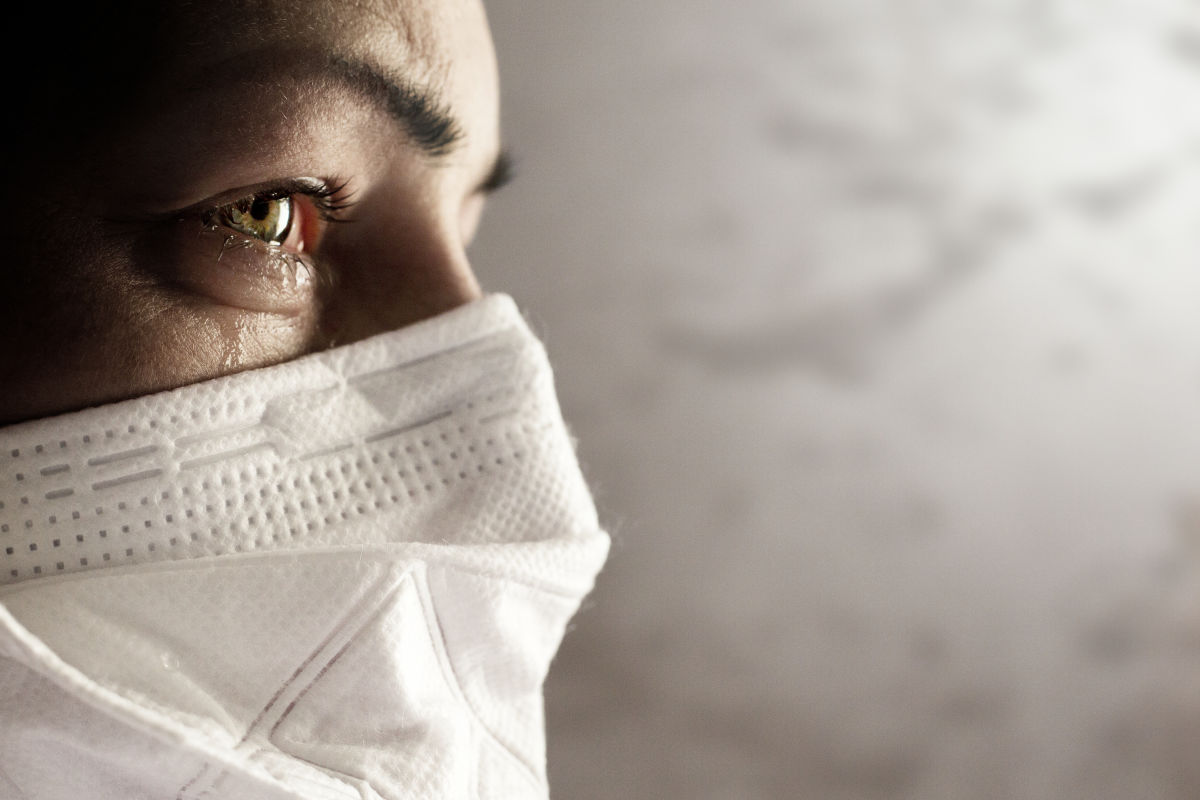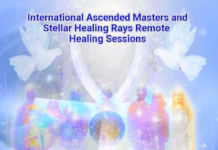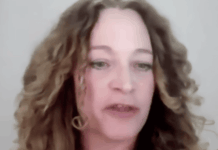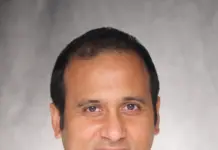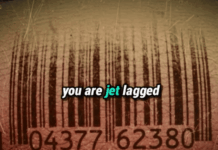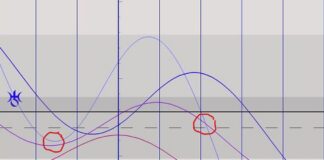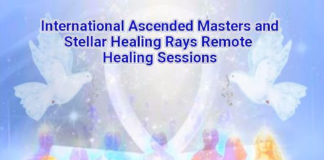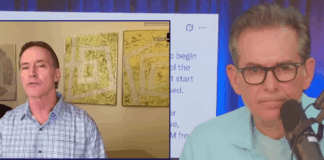By Kathy Gyngell,
‘I’ve seen suffering amongst people on a level that I’ve never seen before. In the last week, I went to my 13th death or cardiac arrest and subsequent death post the vaccine’ – Paramedic, Queensland Ambulance Service
LAST week a regular reader of TCW Defending Freedom sent me a film that, despite all I already knew about Covid vaccine adverse reactions, injuries and deaths, shocked me to the core. In it more than a dozen Australian nurses and paramedics give their testimonies of what they’ve been witnessing and dealing with daily. They fear speaking out loud and openly such is the culture of silence and denial, a culture which defies conscience and medical ethics. Their voices and faces are disguised because they fear for their jobs: ‘It’s been made very clear by our registry board AHPRA that any form of speaking out against the narrative could lead to deregistration. And Queensland Ambulance has made that clear as well.’
Their need for anonymity is self-evident but equally clear is their determination to tell the world what is really happening and what the medical authorities are suppressing. I do not know who made the film but nothing about it suggests to me that it is anything but genuine.
It opens with quotes from various nurses’ and paramedics’ testimonies – their first-hand evidence of vaccine harms. Each is identified by number and job title as confirmed, in the film, by a commissioner of declarations.
‘What I’m seeing on the front line is that, you know, these vaccines are not as safe as we were led to believe. And in a lot of cases, they seem to be doing more harm than good.’ Paramedic (over 15 years) QLD Ambulance Service
‘Four people in wheelchairs present back to the clinics after receiving Pfizer and they were all under 40. These were all people that weren’t able to walk. They had numbness and they couldn’t feel legs and arms.’ Vaccine clinic admin officer, QLD Health
‘So there was a young person who had his jab three days prior, so he had it on the Wednesday and he was last seen well on Saturday night. Sunday morning, he was found unconscious on the floor in his own vomit, and he was diagnosed as being in septic shock and having a massive cardiac infarct. And he went to ICU. And I don’t think he recovered.’ Clinical nurse (over 15 years) QLD Health
‘To be honest, I just wish that we were allowed to speak about this. It is so frustrating to be in a position where we are seeing this stuff and we are seeing what these vaccines are doing and we’re not allowed to speak about it. Under the threat of losing our registration, we’ve been told that we’re not allowed to talk about these things and it is . . . I can’t even begin to put into words how frustrating it feels to be silenced.’ Paramedic, QLD Ambulance Service
‘Everyone’s living in fear of being reprimanded and losing their job.’ Registered nurse (over 15 years) QLD Health
We are told that as of November 1 there were approximately 7,000 Queensland Health employees yet to follow a direction from their employer requiring them to have their first Covid 19 vaccine. What follows in the film is a long edited sequence of deeply distressing accounts of the range of serious adverse vaccine events the nurses and paramedics have been faced with, obstruction by their medical seniors and refusal to acknowledge these reactions are vaccine-related, the absence of any treatment protocols to address these ‘novel’ but extreme reaction, a ‘normalisation’ of such reactions in the form of hospitals discharging patients still in dire need of help and, finally, expressions of deep concern that no one is being told about ‘the horrible side effects’.
You can watch the full film here below. A series of transcribed and representative quotations follow it.
‘I’ve never witnessed anything like this [inaudible], massive rise in strokes, bleed-outs, neurological disorders.’
‘I’ve noticed a big spurt in strokes. I’ve also noticed there’s been a lot of neurological conditions going on, chest pains, there’s been a lot of people presenting with chest pains post-vaccination. Sometimes it’s after the second one, two or three days, five days. Sometimes it’s immediately, the day of.’
‘Since the vaccine has been rolled out on the front line, we are seeing what I would call the effects of this vaccine. We’re seeing, well, I personally have seen an increased number of cardiac cases. In the almost 20 years I’ve been a paramedic, I’ve never before attended six back-to-back cardiac cases in one shift. In all of these patients, all six had been vaccinated.’
‘Never had a seizure before in her life. Again, healthy, well, normal 20-odd-year-old and presented with seizures, post her first Covid shot. That was two days after her Covid shot she presented with seizures on the back of no history of the same.’
‘The thing that bothers me the most is that we’re lying to the patients and we’re telling them that this is going to keep them safe and this is going to keep them out of hospital and this going to prolong their life. And everyone has taken the vaccine under false pretences, no one has been told that there are horrific side effects.’
‘When a patient comes to the hospital, they’e accompanied by a Presenting Problem paperwork and that paperwork clearly says they’ve had the vaccine and they’re now having what appears to be a stroke or bleedouts, bleedouts from the bowel and the . . . noses and just bleedouts, blood clots, passing large blood clots. Neurological disorders, unable to control their body. Patients are having strokes, where they’ve completely lost half the use of their body. Painful tingling in their peripheral nerves that over the next . . . over a period of time become so debilitating they need a wheelchair. I have seen on the paperwork at least four young people that . . . weren’t documented as having any co-morbidities, like . . . health issues, that had have had the vaccine and died within a short timeframe. One of them was 48 hours later. People under 50. And according to the paperwork, there was no paperwork accompanying it to say that they had other health issues.’
‘There was a lady that presented to the hospital with a severe catastrophic stroke. In the end, unfortunately, she did pass away, and her husband was of the firm belief it was the vaccine that had caused this. She had had two doses of AstraZeneca and was well, fit and active until two weeks post the vaccine.’
‘One example of a vaccination injury, which is very concerning, is young mums in their thirties ringing up and . . . or contacting us and saying they’d had a Pfizer vaccine or whatever vaccine they’ve had prior, like three days, one week, shortness of breath, chest pain. They’re generally very healthy. No issues in the past at all. And then suddenly they’ve got these issues.’
‘So often after they’ve waited their 15 minutes and the nurses have checked them off that they’re right to go, they come to the Admin at the checkout and more times than not people are very dazed and they can’t even tell me their names. And they’re sweating and they don’t look good. And we’ve had a number of people actually just drop and faint at checkout. And then they’ll need to be taken to the resus bay and monitored.’
‘What I’ve really noticed is that when this all began, everyone was quite stringently noting that the patient had had a vaccine. In the last [number of] weeks, that history-taking has dropped off. So the vaccine isn’t mentioned alongside with that presentation, it’s found out through other means.’
‘And we’ve had patients who had the first injection and died and there’s been nothing reported. No autopsy, no . . . reporting.’
‘So when these presentations first started happening, we had a team meeting and I just raised the question as to why we thought we were having so many presentations for, you know, this particular . . . you know, pleural effusion or be it the strokes. And everyone just got a little bit nervous. No one wanted to address the concerns. I just . . . I don’t know why. I think we all know it’s happening. There’s been no education as to how to even report these. Usually, you know, if anything comes . . . anything new happens, we would get these big emails of, “This is how you report. This is who you report through.” There’s been no communication at all regarding that.’
‘We’ve been told not to worry about it, because it’s rare. And when you’re doing one every shift, minimally, you know in your heart that it’s not rare.’
‘So many of us have wanted to come forward in regards to what we’ve been witnessing in the hospitals, the adverse reactions from these vaccines. However, any conversation around the viruses [sic, means ‘vaccines’?] within the hospital and amongst colleagues is strongly looked down upon. And that’s mostly due to the fact that we can be reprimanded by AHRPA.’
‘There was a noticeable change in approximately June or July, when there was no documentation about a person’s vaccination status. In fact, this question was not even being asked by the doctors when patients were presenting.’
‘I did speak to a doctor one day and asked if, during the admissions, if they were asking the patients if they had received the vaccine. And his reply was, “No.” When I probed further and asked him, “Why?” – because to me, that’s part of the patient’s medical . . . medication history – his reply was that, ‘Doesn’t everyone? Doesn’t everyone have the vaccine?’ To which I replied, “No.” And he just shrugged it off.’
‘Yeah, the wards are busier, to do with nurse-patient ratio, because we’ve got an increase of elderly patients coming in with upper gastric bleeds and they’re having scopes, but they’re not finding out what’s causing these bleeds. We’ve also seen an increase of pericarditis within elderly patients and young patients. And an increase in shingles in patients since the vaccination.’
‘It’s so under pressure because of the types of patients that are coming in now. When people come in with strokes and brain bleeds and pleural effusions, that’s not a quick stay – that’s a 28-days in ICU and a long stay on the wards. And these people are coming in not because of Covid, but because of the vaccines. They’re short-staffed because they’ve chosen to pay the people working at the vaccination hubs more than the award wage. And so every person who’s ever worked in a nursing pool or is a casual or works for agency has chosen to take up a station in the vaccination hubs. And therefore we have no staff to fall back on. That’s probably the key factor. The second factor is that our staff members that have been vaccinated are very unwell, and so there’s very high sick leave in the hospital setting.’
‘I do an eight-hour shift and we see around 300 to 400 people per day. And we have from three to five adverse reactions every day. ‘
‘I’ve seen four people develop pericarditis, post this vaccine. I’ve seen two women who develop neurological issues. One of them lost control of her legs, one of them lost control of her hands. I’ve seen a marked increase in patients who become septic days after getting the vaccine with no obvious cause of infection. I’ve seen 30-year-olds have massive strokes that shouldn’t be having strokes. They’re healthy, well, 30-year-olds. You know, there’s a marked increase in patients presenting with stroke-like symptoms, patients presenting with cardiac issues that shouldn’t have cardiac issues – healthy, well people who are presenting with arrhythmias and other cardiac problems that everything . . . the only common denominator that they all have is that these things have started post them getting this vaccine.’
‘And then we started seeing the bilateral pitting oedema to the legs. So if you have an underlying condition of heart failure or you’ve got renal failure, you can get swelling in your legs. These people that were coming in had neither of those background illnesses. Yet we couldn’t work out why they had this gross pitting oedema up on to their knees. And there was no inflammatory markers. There was nothing. And these poor people were quite debilitated because the swelling was painful and they couldn’t walk. So they would come in and we would be doing a whole heap of testing on them to find out what was causing it.’
‘And then the strokes started coming in. So we’ve had the intracranial haemorrhages in a wide variety of people. Intracranial haemorrhage, usually, is driven by underlying blood pressure that’s not being controlled, so you’ve got underlying hypertension or you’re on blood thinners and you have a head strike, you hit your head and then you have this intracranial bleed. But with the patients that I’ve observed, they’ve got none of those underlying conditions at the bottom of it. They just have an acute bleed. When you have an acute bleed and it’s a large volume bleed, you don’t recover from that, you end up with a brain injury.’
‘What I noticed at the beginning of the rollout of the vaccine was a pattern emerging where people, younger people, were coming in that we’re not used to seeing on our stroke ward. We do get young people sometimes, but a majority are, you know, older people with other co-morbidities. And the pattern that we were seeing was younger people coming in that had recently had the Covid vaccine and they were coming in and they were shocked that they’d, you know, had a stroke because they were previously well, they had no prior conditions that could possibly have led to a stroke.’
‘So, since the rollout of the Covid vaccines, initially we had a much higher volume of elderly patients presenting with a description of “fall from standing height”, which basically means it’s a loss of consciousness. And that, I think, is what really caught my eye first, because you might have one or two people present with this fall from standing height, but you don’t get seven or eight or ten of them coming in, all in the same day. So when they have that fall from standing height, they will either have a head injury or might break a bone or they’re just genuinely quite unwell. And I started having a look at what was this presenting cause, and most of them had just had their vaccine that week.’
‘There’s also been days where there was just one after the other, after the other, after the other of people who just can’t breathe, get the oxygen in their lungs. We’ve never seen anything like that in health. There are a lot of people getting really chronically sick and having life-changing events, and there’s nowhere for them to report it.’
‘I feel devastated. It’s conscience for me. Every day we go to work and we’re in total denial about what’s happening. Should this be any other drug in any other time, any other place, it would be removed from the market. Why are we not removing this drug from the market? Why are we not able to speak out? Why are we being silenced on social media? In our workplace it’s taboo, we don’t discuss it. ‘
Disclaimer: We at Prepare for Change (PFC) bring you information that is not offered by the mainstream news, and therefore may seem controversial. The opinions, views, statements, and/or information we present are not necessarily promoted, endorsed, espoused, or agreed to by Prepare for Change, its leadership Council, members, those who work with PFC, or those who read its content. However, they are hopefully provocative. Please use discernment! Use logical thinking, your own intuition and your own connection with Source, Spirit and Natural Laws to help you determine what is true and what is not. By sharing information and seeding dialogue, it is our goal to raise consciousness and awareness of higher truths to free us from enslavement of the matrix in this material realm.
 EN
EN FR
FR

